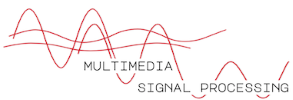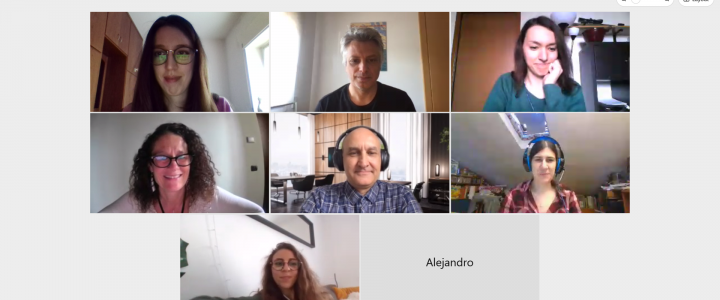Workshop on Artificial Intelligence for an Ageing Society (AIxAS 2020)
The MMSP group is actively participating in the workshop Artificial Intelligence for an Ageing Society (AIxAS 2020) co-located with AI*IA 2020.
Contributions from different research fields are extremely encouraged, wanting to find new ideas for AI application.
Please, notice that the paper submission deadline is September 20th, 2020.
In the following, you may find more details.
We hope to see your contributions soon!
*********************************************************************
AI*AS 2020 – Call for Papers
———————————————————————
Italian Workshop on Artificial Intelligence for an Ageing Society
———————————————————————
Anywhere, November 25th-27th, 2020 – Co-located with AI*IA 2020
http://aixas2020.istc.cnr.it/
———————————————————————
Italian Workshop on Artificial Intelligence for an Ageing Society (AIxAS 2020)
Increased life expectancy is an achievement of modern society in Organization for Economic Co-operation and Development, OECD Countries (and recently in developing Countries) thanks to the technological progress in health, living places and quality of food. The aggregate consequence of the prolongation of the life-time span is the growth of an ageing society, testified by several demographic studies. The study of the consequences of an ageing society on the future of social living had recently been considered by large world institutions (UN, EU), which addressed and designed programs for social and technological development taking into account the impact of the ageing society in the future of the world. Within this framework, topics such as “prolonging independent living”, “ageing well”, or “social inclusion” are increasingly becoming more and more relevant. Several initiatives all over the world took care of these aspects focusing on the problem of developing a new generation of innovative technologies to face an ageing society and its growing needs. One of the most consolidated programs is known as “active and healthy ageing”, supported by the H2020 research area that recently also launched a call on adaptive smart working and living environments supporting active and healthy ageing. In this scenario, Artificial Intelligence (AI) methods and techniques have and will have a pivotal role, due to the advanced goals of the discipline and its inner cross-disciplinary attitude, in order to deliver innovative and impacting results and related technologies. Facing the problems of an ageing society requires a cross-disciplinary approach, too. The development of new AI-based solutions to support and help older adults to cope with the changes of ageing and cognitive decline represents one of the most advanced ICT areas in the AI field. Robotics, Assistive Technology for Cognition, Sensor-based Monitoring Systems, Compensation Systems, Road Security, Continuous Learning and Navigation Supports for in-and-outdoor Systems are the fields where AI may challenge its solutions and contribute to innovative technological changes.
The workshop calls for contributions from experts in Artificial Intelligence, Cognitive Science and from crossing disciplines involved in the development of AI-based researches and technologies for the ageing society in (but not only) the following areas:
- Activity monitoring systems (indoor and outdoor)
- Object and Activity recognition
- Human-environment and human-robot interaction
- Novel sensors and actuators
- Smart environments (indoor and outdoor)
- Ambient Assisted Living (AAL)
- Personalization of AI Services for older adults
- Intelligent and Cognition-based User Interaction
- Advanced Data Analysis Techniques and Information Fusion
- Ageing, mobility and transportation
- Ethical issues in AI domains for Ageing Society
- AI techniques applied to AAL scenarios
HISTORY
This workshop is the ninth event organized by the AI and Ageing Society working group.
Previous workshop:
2019 – Rende (CS), Italy (co-located with AI*IA’19)
2018 – Trento, Italy (co-located with AI*IA’18)
2017 – Bari, Italy (co-located with AI*IA’17)
2016 – Genova, Italy (co-located with AI*IA’16)
2014 – Pisa, Italy (co-located with AI*IA’14)
2013 – Torino, Italy (co-located with AI*IA’13)
2011 – Palermo, Italy (co-located with AI*IA’11)
2010 – Brescia, Italy (co-located with AI*IA’10)
PAPER SUBMISSION
We welcome two categories of paper submission: Short papers (5-9 pages), Regular papers (above 10 pages).
Papers should be formatted according to the CEUR-ART style which is available for LaTeX and DOCX.
The style is available via our proceedings volume template at
http://ceur-ws.org/Vol-XXX/
Overleaf users can clone the style from
https://www.overleaf.com/read/gwhxnqcghhdt
Offline versions for LaTeX and DOCX are available from
http://ceur-ws.org/Vol-XXX/CEURART.zip
Submissions will be managed via Easychair at the following link, selecting the track AI for an Ageing Society:
https://easychair.org/conferences/?conf=aixia2020
PUBLICATIONS
Papers will be published in the AIxIA series of CEUR-WS. AI*IA Series on CEUR-WS.org
- Springer’s LNAI Post-proceedings of selected and revised papers
Authors of selected papers, accepted to the workshops, will be invited to submit a revised and extended version of their work to appear in a volume of the Springer’s Lecture Notes in Artificial Intelligence series (LNCS/LNAI).
- Journal of Intelligenza Artificiale Special Issue
Following the tradition of the last editions, a selection of the best papers, accepted for the presentation at the workshops, will be invited to submit an extended version for publication on “Intelligenza Artificiale”, the International Journal of the Italian Association for Artificial Intelligence, edited by IOS Press and indexed by Thomson Reuters’ “Emerging Sources Citation Index” and Scopus by Elsevier.
FORMAT OF THE VIDEO PRESENTATIONS
Authors of accepted papers at the workshop will be requested to provide a video recorded presentation of their work. Presentations will be available to all members of the association. Videos must have a length between 5 and 8 minutes. The video should be in MP4 format (1280×720). More details will be published here.
IMPORTANT DATES
Paper submission deadline: September 20th, 2020.
Notification to authors: October 16th, 2020.
Camera ready submission: October 30th, 2020.
Video and slides of the presentation: November 10th, 2020.
ATTENDING
The conference will be fully virtual.
Workshop Attendance
The workshop is asynchronous. The authors’ presentations will have the form of short videos (5 – 8 minutes) broadcasted through some cloud platform or video platform. Videos and slides of the presentations will be made available to the participants 4 – 5 days before the events.
Nevertheless, each workshop will have a time colocation and authors’ presentations will have a schedule as usual. Each person interprets the schedule in their own time zone. The aim of the schedule is: (i) to get a commitment to spend time watching talks and engaging with comments; and (ii) to create synchronisation, allowing for some discussion and social interaction. Authors are expected to regularly monitor and respond to questions and comments on their presented paper.
Interaction among the authors and the participants and among the participants themselves will be achieved through a collaborative and communicative platform by means of dedicated channels/threads for each paper, chat rooms, or the like. The chosen platform is SLACK and the attendees are expected to watch the video for a talk and then feel free to post questions and comments through the platform.
WORKSHOP ORGANIZERS
Filippo Palumbo (ISTI-CNR, Pisa, Italy)
Francesca Gasparini (MMSP-DiSCO, University of Milano-Bicocca, Milano, Italy)
Francesca Fracasso (ISTC-CNR, Roma, Italy)



